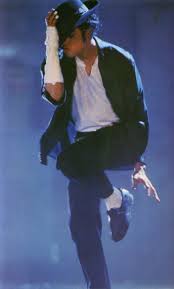 I’m always fascinated when I see or hear about the practice habits of great performers. The general public usually just sees the “result” of their labors, the spectacular performance, and it may be tempting to think that it all comes easily to them. “Yeah, they were born talented, so it just comes naturally.” From my experience, though, it’s exactly the opposite. The “great” performers usually work harder, much harder, than the rest of us.
I’m always fascinated when I see or hear about the practice habits of great performers. The general public usually just sees the “result” of their labors, the spectacular performance, and it may be tempting to think that it all comes easily to them. “Yeah, they were born talented, so it just comes naturally.” From my experience, though, it’s exactly the opposite. The “great” performers usually work harder, much harder, than the rest of us.
Michael Jackson is a good example of this. Sure, there was a crazy side to him, but when it came to his performing, he worked extremely long hours to perfect his craft. I once read an interview with his dance coach. Michael loved Fred Astaire, and this choreographer was helping him incorporate Astaire’s dance moves into his own routines during rehearsals for what would have been his final concert tour. The choreographer described how Jackson would practice 8 dance counts for 4 hours straight. That’s 2 measures of music, for 4 hours! (Let that sink in for a moment.)
He said that Michael would extend his arm and hold it there, feeling the exact angle. Then he would do the next step, and repeat the transition over and over, feeling it throughout his body. He would do this in front of a mirror, for hours, until it thoroughly became a part of him. An amazing aspect of this is that by this point, Michael’s fans would have enjoyed anything he did. But instead of merely repeating his previous choreography, he chose to learn new things. In a way, the reason is clear: he was a dancer, and this is what he enjoyed doing. He wanted to be the best he could be. For himself.
Let’s take these lessons and apply them to learning piano improv. Let’s say you want to learn how to play a bass line to a particular song. One way would be to learn the bass pattern and take it through the song’s chord progression, altering it if necessary. Let’s go a little further, though, using Jackson as inspiration. What if you stayed with just the first 2 chords for a while, repeating them over and over while trying out every possible bass line you can think of. And then try them with various combinations of articulations: staccato, legate, a little of both, etc. Do this for a while, and then move on to the next 2 chords. And then work on all four together, as a longer phrase. Do you see where this is going? You’ll be getting into the music much deeper. The same could apply to soloing. How many phrases can you improvise over a Bbmaj7 chord, for example? And then try to solo over every Bbmaj7 left hand voicing you can come up with. Get into practicing like this, and an hour will go by like “that!”
So the next time you see a video of Michael Jackson doing his famous “moonwalk,” think about how hard he worked to get there and let it inspire you to do the same. Happy practicing!
If you’re looking for some fun ways to improve your improvising, there are some video lessons for you HERE.
